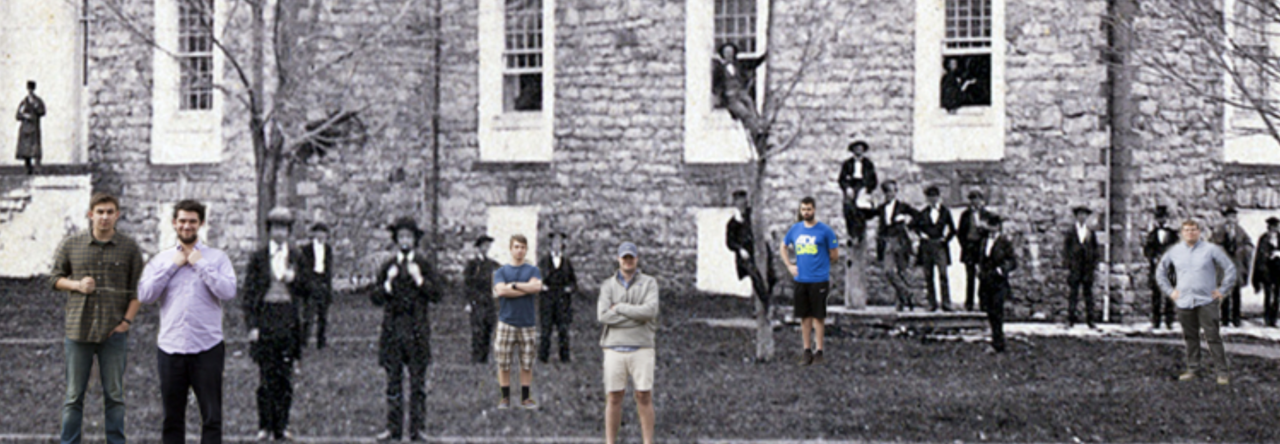Which usage was more common during the Civil War itself: Confederates or Rebels? Which usage is more appropriate today? The answer to those questions require some careful thinking about evidence and perspective.
One way to test that proposition is by using an online tool from Google known as the Ngram Viewer. This resource allows users to chart the appearance of words in over 15 million printed books and pamphlets that have appeared since the 16th century. If you narrow the search to the period 1861-1865 and enter the terms Confederates and Rebels (case sensitive) separated by a comma (and with the smoothing function reduced to zero), you might get a sense of one possible answer (see image below).
Or you might try searching the Collected Works of Abraham Lincoln to see how he used the terms. During the war, his writings included 160 references to “rebels” and only about twenty references to “confederates.”
Perhaps the most fruitful way to answer this question would be to create a series of visualizations from various digitized historical newspapers. Of course, that idea is quite ambitious. It appears for now at least that nobody has yet attempted to do this. However, the New York Times Disunion series contains an excellent post from a professor and student at Gettysburg College that addresses an aspect of this issue in a thought-provoking way. Professor Scott Hancock and undergraduate student Alexandra Milano wrote about the “Real Rebels of the Civil War” in October 2013. Their post is worth reading for anyone interested in how the use of words can dramatically affect the interpretations of actions.

Jason Guss
I’d assume based on the graph that mid-1863 was a turning point (Gettysburg was Nov-1863). Northerners would have a negative view of southern soldiers and would thus likely call them rebels. As Lincoln demonstrates, he believed the states were always unified; therefore southerners were in a rebellion. Southerners, on the other hand, see themselves as seceded. This would signal the use of “Confederates” due to loyalty to the Confederacy. The “winning side” would more likely have successful and popular publications, resulting in the higher use of the term for southern fighters.
Aidan McDonald
While I absolutely agree that the definition and use of words are not static, and that the way in which a term is employed can drastically change tone and meaning, the arguments of Professor Hancock and his student are limited in utility to a semantic exercise. The authors use only one definition of “rebel” from the Oxford English Dictionary: “reacting against conventions, nonconformist,” to argue the Confederacy and Confederate Soldiers were not “rebels” in what they vaguely refer to as “the fullest sense of the term.”
They use this definition to argue that the real “rebels” of the war were the black men, women, and children the Confederacy sought to keep enslaved. I do not necessarily disagree with any of their arguments that this was the case. They were certainly reacting to overthrow the oppressive institutions and conventions of slavery, and they certainly deserve to be thought of as rebels in the best possible sense of the term.
I disagree with the assertion that Confederates were “anything but genuine rebels” since they were preservationists, accommodationists, and conformists. While I do not wish to argue they are rebels of the same type (fighting to maintain morally reprehensible institutions hardly suggests they are worthy of praise), they are in my mind, and by the same definition, rebels nonetheless. While they were fighting to maintain the institution of slavery, they were simultaneously rebelling against other institutions and conventions. They were rebelling against a global movement to abolish slavery (e.g. the Slavery Abolition Act of 1833, which abolished slavery in the British Empire, with some notable exceptions) as well as conventions establishing the supremacy of the Federal government over the states and suggesting the end of the compact theory of government.
Arguing that Confederates were not rebels but other groups in fact were is a lesson itself in how the meaning of words can be manipulated by their authors. The ease with which Professor Hancock makes his argument is illustrative of problem of the imprecision and mutability of language. This becomes even more complex as historians attempt to assign meaning to primary sources. In his article, Professor Hancock fails to make a convincing argument that Confederates were not “rebels,” but he does succeed in convincing me of his opening argument, that “War is always accompanied by
Aidan McDonald
…a battle for truth, and combatants for truth wield language as their weapon.”
My apologies, the last line got cut out.